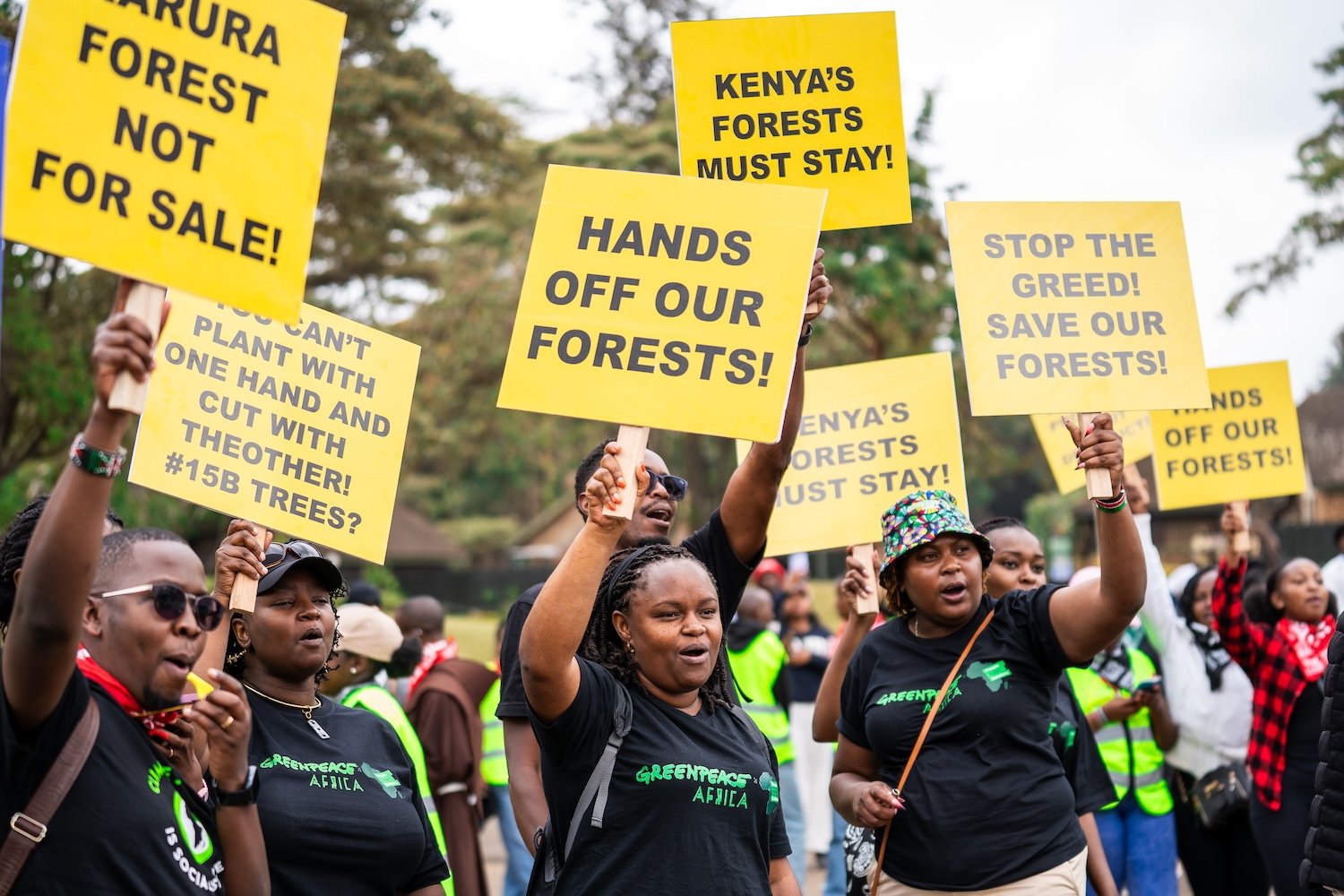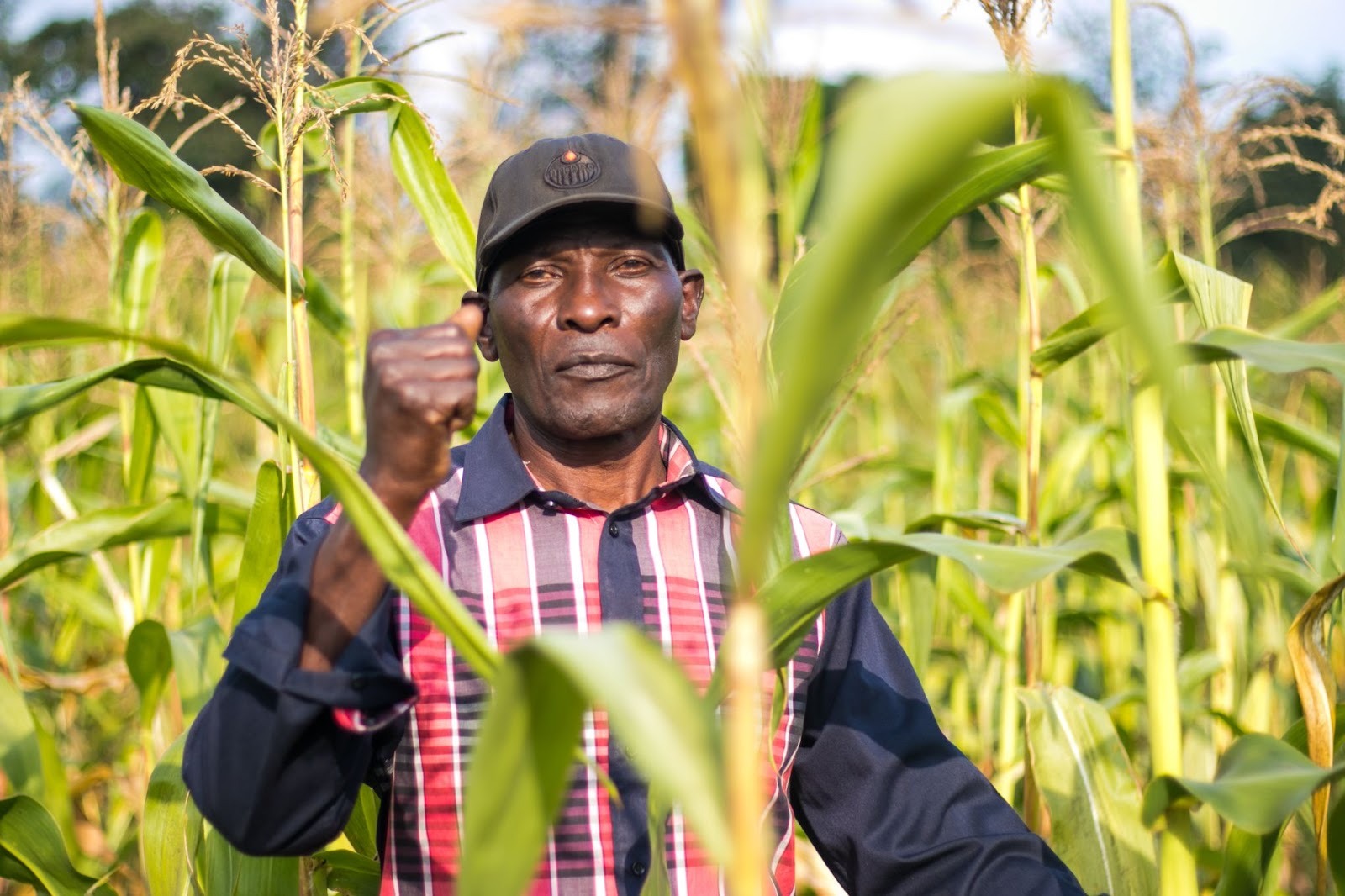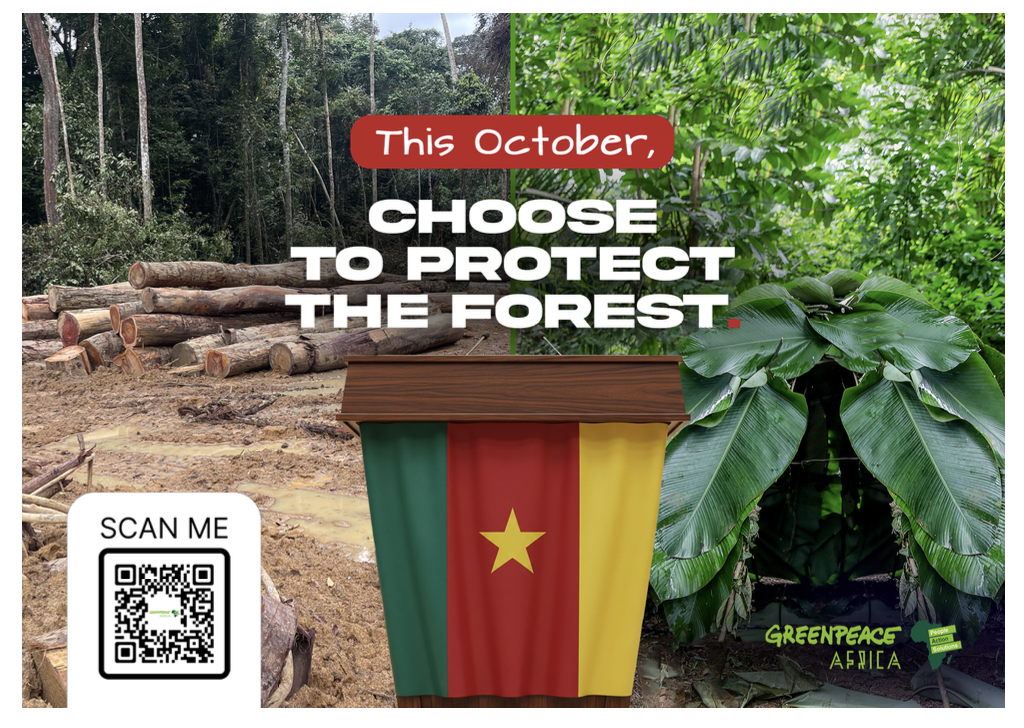Yaoundé, 22nd November 2018- The negative socioeconomic and environmental repercussions of Sudcam activities in the South of Cameroon has prompted stakeholders from government and civil society to undertake a field mission to Sudcam concession areas. The visit to the villages of Bitye, Edjom, Ndibessong, Zoumeyo and Ekok exposed the plight of local and indigenous communities and the large-scale unregulated deforestation taking place in Cameroon.
The Cameroon Network of Human Rights Organisations (RECODH), Council of Protestant Churches of Cameroon (CEPCA), Senators, Parliamentarians, Representative of Traditional Authorities and Greenpeace Africa took part in the trip.
“We have seen a disturbing reality of local and indigenous communities being deprived of their basic human rights by a large and powerful corporation. Baka people have been displaced from their settlement and robbed of their livelihood without fair and adequate compensation. By refusing to address the social concerns affecting riverine communities, Sudcam is nurturing a ticking bomb,” said Joseph Zebaze, the National Coordinator of RECODH.
The Cameroonian government and Sudcam did not undertake a Free, Prior and Informed Consent (FPIC) or any proper consultation between the government, Sudcam and local communities before the acquisition and development of land. As a result, local communities have expressed dissatisfaction as Sudcam expands, taking away their land and their identity.
“It is our collective responsibility as Christians of goodwill to caution against preventable conflicts”, said Mbagna Francis of CEPCA. “The testimonies we have heard and seen from affected local and indigenous communities in the concerned villages is deplorable. It is imperative to stop the negative activities of Sudcam and I am glad we were in the field with senators and parliamentarians. I hope they solve these problems at the legislative level” added Mbagna.
There are no proper dispute resolution mechanisms in place to address grievances from affected local community members. It is alleged that complaints with administrative authorities are either not registered or leads to threats from the company and its owners.
“Sudcam is cloaked in a complex web designed to hide her owners. It is alleged that 20% of the company is owned by a member of the Cameroon regime whose identity continues to be a mystery,”said Eric Ini, Forest Campaigner for Greenpeace Africa.
“We call on Sudcam to immediately suspend any further forest clearing and engage in a conflict resolution process with local and indigenous communities, addressing violations of rights, and providing redress for harms due to physical and economic displacement. They must prioritise restitution and restoration of lands. In addition, SUDCAM should publicly disclose all documents related to its ownership, its land acquisition process and any environment and social impact assessment that it has carried out” concluded Ini.



